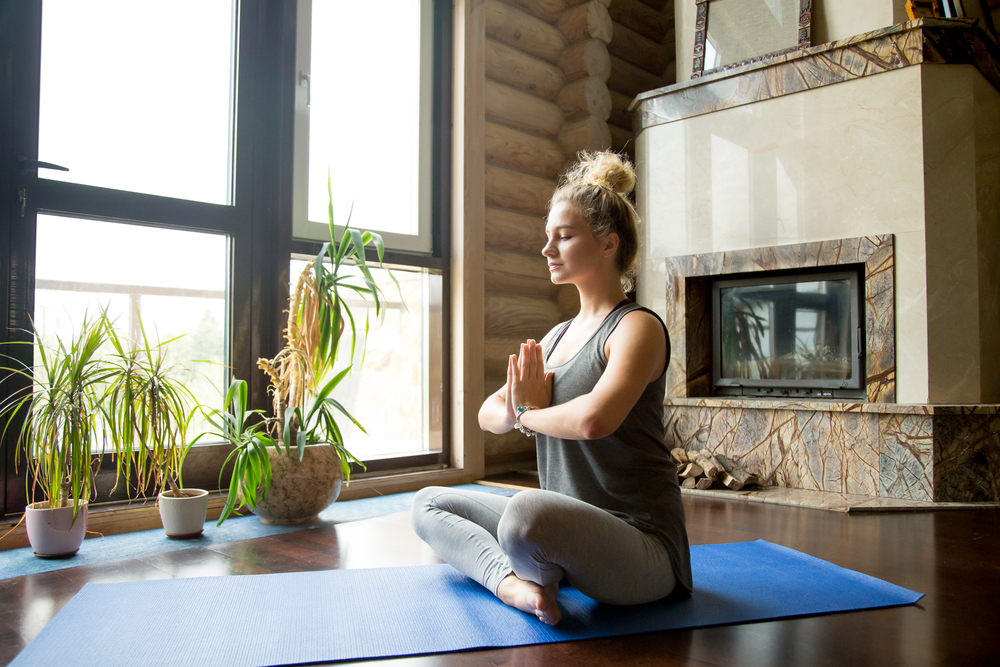
The hectic lifestyles of today mean that people have a lot on their plate and not enough hours in a day to get everything done. Therefore, sitting for 15 to 20 minutes with your eyes closed may come off as a waste of time when there is so much to be done. But, if you do some research and listen to the experts, then you should be aware that practicing meditation regularly can provide several health benefits. Meditation is proven to help people combat anxiety and depression, improve the overall quality of their sleep, and most importantly, it makes your mind more agile and smarter.
As a matter of fact, meditation experts will tell you that this practice can also support your healing and well-being and even help with weight loss and controlling your appetite. If you want to reap these benefits for enhancing your physical and mental health, you can incorporate meditation into your daily routine. However, you have to do it right, and this means checking out some of the dos and don’ts of meditation below:
1- Do take it slow
When you kick off your meditation journey, start by dipping your toes instead of diving in headfirst. Slow and steady wins the race so that you can start with just 10 minutes each day. It can be quite challenging to sit quietly for even 10 minutes a day, but it can help you relieve anxiety and can also enhance your focus.

2- Don’t compare yourself with anyone
It is unhealthy for people to compare themselves with others for a variety of reasons. No matter what the situation, you should not compare yourself to anyone, and this also applies in the case of meditation. It is essential to remember that everyone is different, and how you feel and meditate can vary. Bear in mind that meditation is an individual experience and is also deeply personal. In fact, your experience can vary even in different sessions, so you should not compare yourself to anyone.
3- Do develop a habit
If you want to incorporate meditation into your life, you need to develop it as a habit. What does it mean? Put simply, it means that you add it to your everyday routine. Set a fixed time for meditation every day because this makes it easier to stick to it. Meditating in the morning is recommended because this reduces the chances of postponing it or blowing it off entirely. But, you can also choose to meditate before sleeping, especially if you want to improve the quality of your sleep.

4- Don’t rush yourself
Do not consider meditation a chore that has to be done. If you treat it this way, you will not be able to reap the bounties. Avoid rushing yourself and be patient. Remember that change will not happen overnight, and it will take a few sessions before you begin to feel some improvements. Like other activities, you also need to practice meditation to get the results you are after.
5- Do create a separate space for meditation
While it is true that you can meditate pretty much anywhere, it is recommended that you set aside a separate space for it. This should be someplace where you are not likely to be disturbed. In addition, having a separate space makes it easier for you to achieve the right mindset. However, you should make sure the space you choose is also comfortable and without any disruptions or distractions.
6- Do not get discouraged
When you have a full plate, it is expected that you will miss your meditation session every now and then. But, just because you miss a few meditation sessions does not mean that you will lose all your progress. Do not get discouraged because the purpose of meditation is to help you start anew each day, which means you can miss a few days and still get back on track.

7- Do use a timer
There is no harm in using a timer for managing your meditation sessions. It will tell you when to end the session, which means you do not need to check your watch every couple of minutes. Doing so only hampers your meditation practice, so a timer can keep distractions and anxiety to a minimum because you know you will not go overboard. Instead, you can fully focus on your meditation and wait for the timer to alert you.
8- Do not lie down
It would be best if you were seated in order to meditate because it is not the same as falling asleep. Lying down signals to your brain that you are ready to sleep. But, there is a difference between a relaxed and meditative state and actually sleeping, and your body needs to recognize it. Thus, you should remain seated when meditating, but you can lean back against a wall or use some pillows to make yourself comfortable.
9- Do keep an open mind
If you are skeptical about meditation and constantly think about it during your session, you are only going to waste your time. You should keep your mind open when you meditate, not just about the practice itself but also about what you think during meditation. This means no judgments because you deserve a break. Keep an open heart and be kind to yourself because this is the only way you will be able to heal.

10-Do not focus on ‘good’ and ‘bad’
There is no such thing as ‘good’ and ‘bad’ meditation. Instead of worrying about this, your focus should be more on improving your physical and mental health. People do get distracted during their meditation sessions and can even fall asleep, and there is no harm in it. The key is to ensure that you meditated and that you see some progress.
11-Do give different meditation types a try
Every individual is unique, and this does not change where meditation is concerned. You will find that different meditation types exist for you to choose from. Take some time to explore a few options, or you can even experiment with some, such as guided meditation, breath-focused meditation, visualization meditation, and even chanting meditation.
12-Do not allow your mind to stray
Sure, everyone will get distracted every now and then, but the focus is how you will be able to see the benefits of meditation. Concentrate on your breathing to focus and if your mind strays, shift your attention to your breathing until you are able to concentrate once more.






